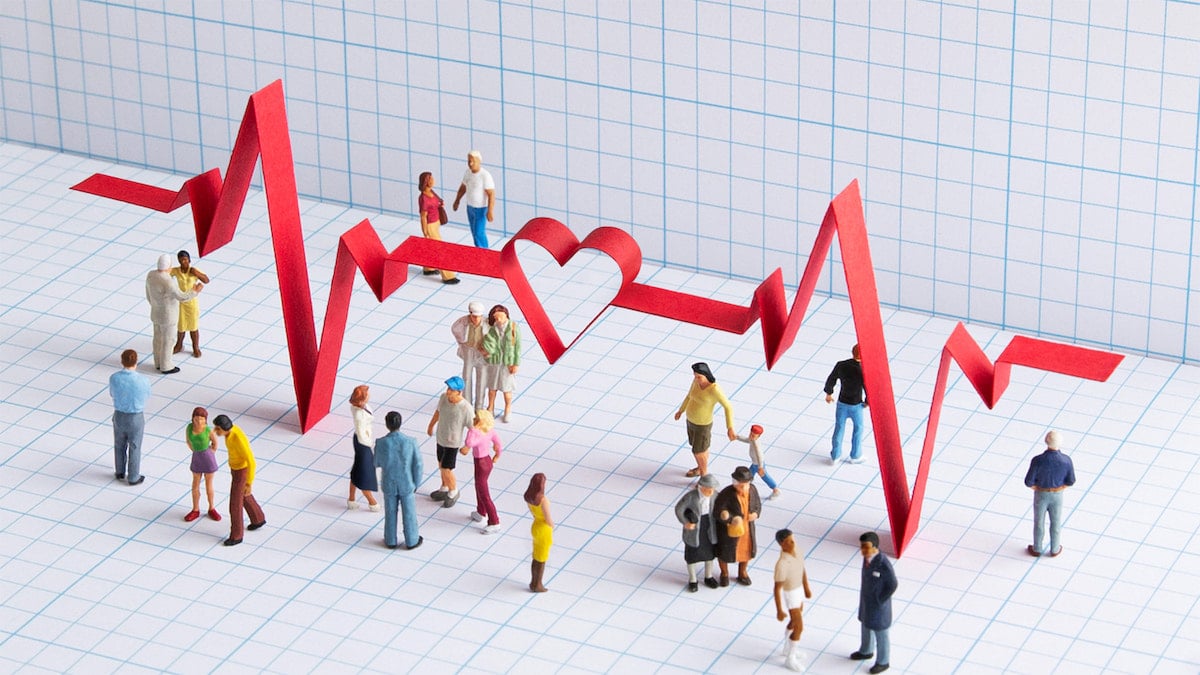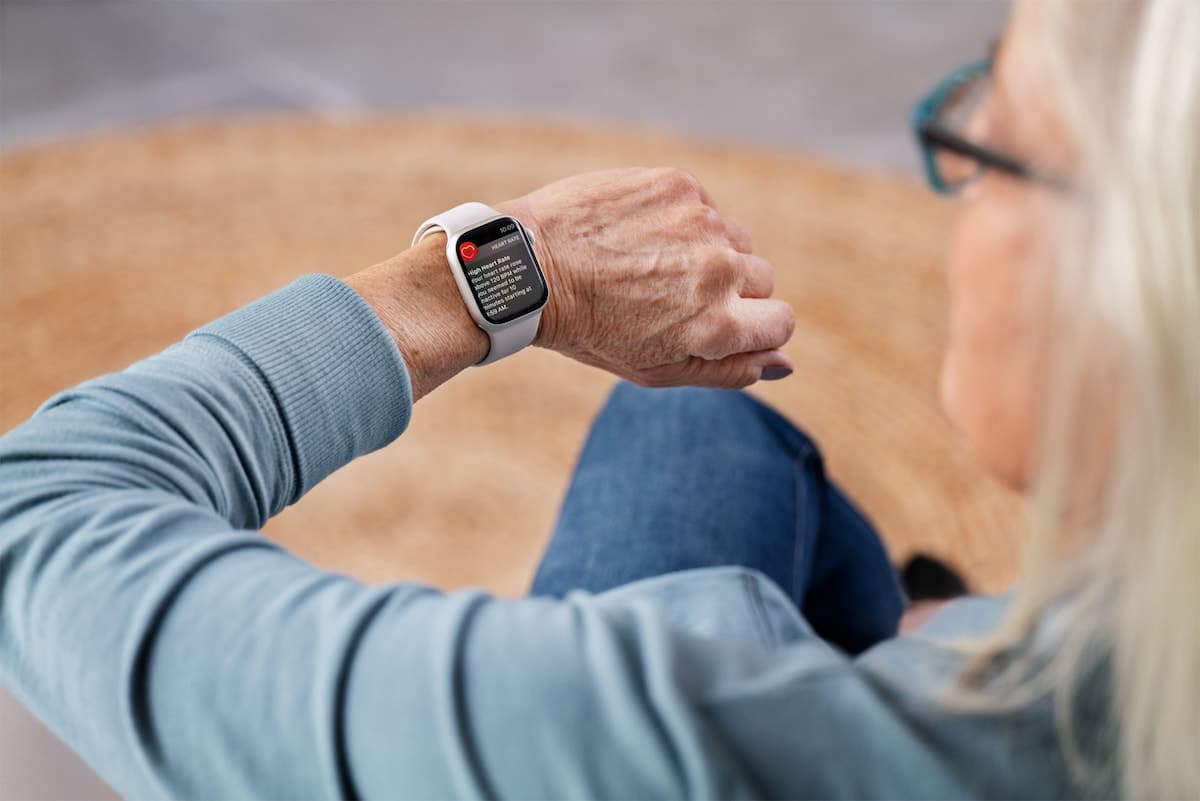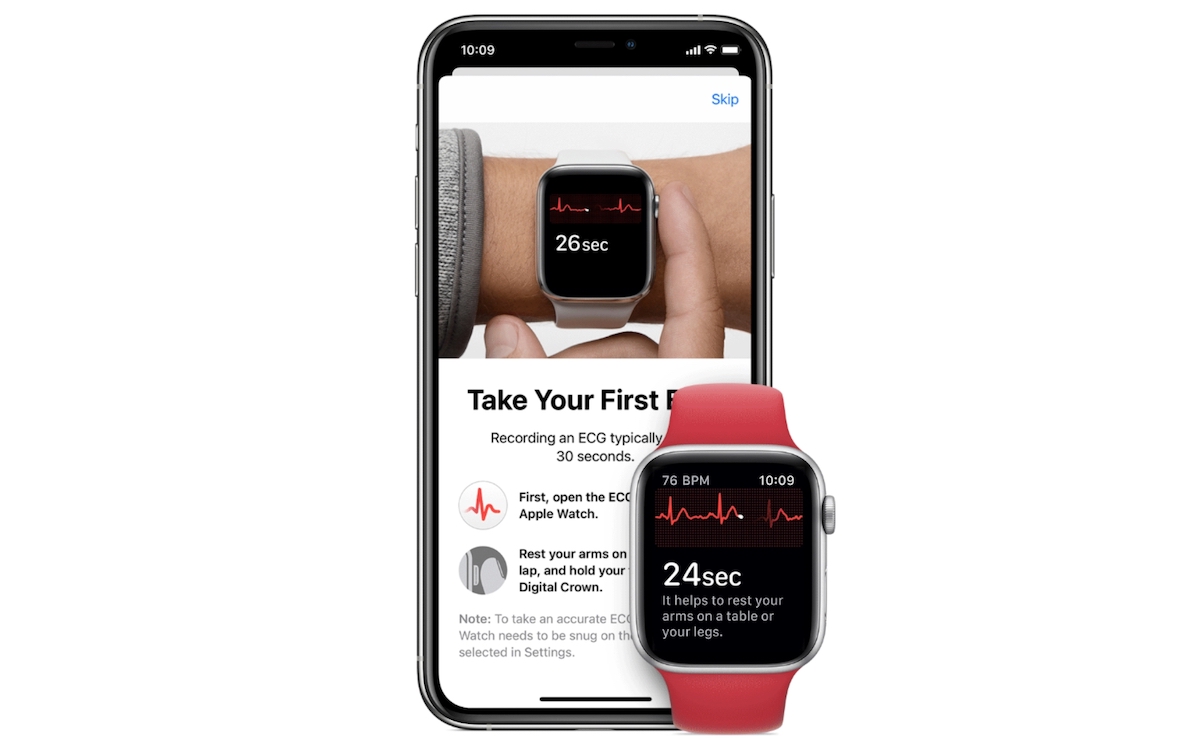Powered by watchOS 9 and new hardware, the latest Apple Watch models offer heart health features like irregular rhythm notifications, high and low heart notifications, the ECG app, Cardio Fitness, and AFib History.
These features paved the way for the launch of the Apple Investigator Support Program in 2022 to provide researchers with Apple Watches to “break new ground in health research, including the scientific understanding of the heart.”
Now, the tech company has shared the cutting-edge work of health researchers from around the world who used Apple Watch to study the heart and develop breakthrough tech related to heart health.

Apple Watch aids research on children’s cancer therapies, the impact of smoke, and early detection of AFib
Powered by an electrical heart sensor, Apple Watch’s ECG app enables users to take an electrocardiogram (ECG) test to measure the timing and strength of their heartbeat at any place and at any time. Integrated with the Health app on iOS, users can share data with their doctor to gain insight into their heart rhythm and find irregularities.
This technology has aided three unique heart health-related research on children’s cancer therapies, the impact of smoke on firefighters and early detection of AFib.
Associate professor Rachel Conyers and Dr. Claudia Toro, senior pediatric oncologists at the Murdoch Children’s Research Institute in Melbourne, Australia will start researching the sensitivity of the Apple Watch ECG app in 40 children and adolescent patients to understand the reality of cardiac toxicity and identify potential opportunities for intervention.
Dr. Conyers said:
“I read about the Apple Heart Study and I thought this could be important for pediatrics. We used to think of cardiac toxicity as something that happened 10 years after treatment. But now we know that new cancer therapies (like specific inhibitors or immune therapy) can cause arrhythmias within 48 hours of medication — so there’s a big gap in terms of what we know about the toxicities at the moment.”

Next month, Dr. So-Min Cheong, an associate professor in the Public Service & Administration Department at the Bush School, Texas A&M University will provide firefighters with Apple Watch to study the impact of wildfire smoke on heart health, along with Drs. Brian Kim and Marco Perez at Stanford Medicine.
She hopes to see the impact of smoke on firefighters’ health in real-time and develop tailored interventions. Dr. Cheong explained:
“General health recommendations or off-the-shelf interventions weren’t good enough for me. People are unique. Each individual is different when it concerns their health, and I wanted to learn more.”
Through her connections in the research community, Dr. Cheong learned that Apple Watch could help capture the kind of health data she needed. “A colleague of mine at Stanford had shared their experience using Apple Watch, and it’s known for its heart rate accuracy,” she adds. “I had always wanted to be able to do more noninvasive, sensor-based analysis on individuals to get at more precise health measurements.”

Lastly, the Director of eHealth at the Cardiology Centers of the Netherlands, Dr. Sebastiaan Blok is exploring new ways to detect AFib at an early stage along with his colleague at the Amsterdam University Medical Centers.
As the estimated rate of AFib in the EU is expected to double by 2060, researchers enrolled over 300 patients over the age of 65 to wear an Apple Watch for at least 12 hours a day and take an ECG once every three weeks.
Researchers expect to understand how to integrate Apple Watch into the larger health system to help especially help those who do not experience any symptoms. Dr. Blok said:
“We are continuing to grow and innovate with new opportunities, based in science and technology.”
This study marks the beginning of what they hope to understand using Apple Watch. In the future, they plan to explore ways to identify possible opportunities to use the ECG app to monitor patients from home, as certain medications can alter a heart rhythm. They’re also considering how Apple Watch could possibly be used to monitor heart failure patients from home, given it’s a costly disease, and identify predictive biomarkers for exacerbations.
Read More:


